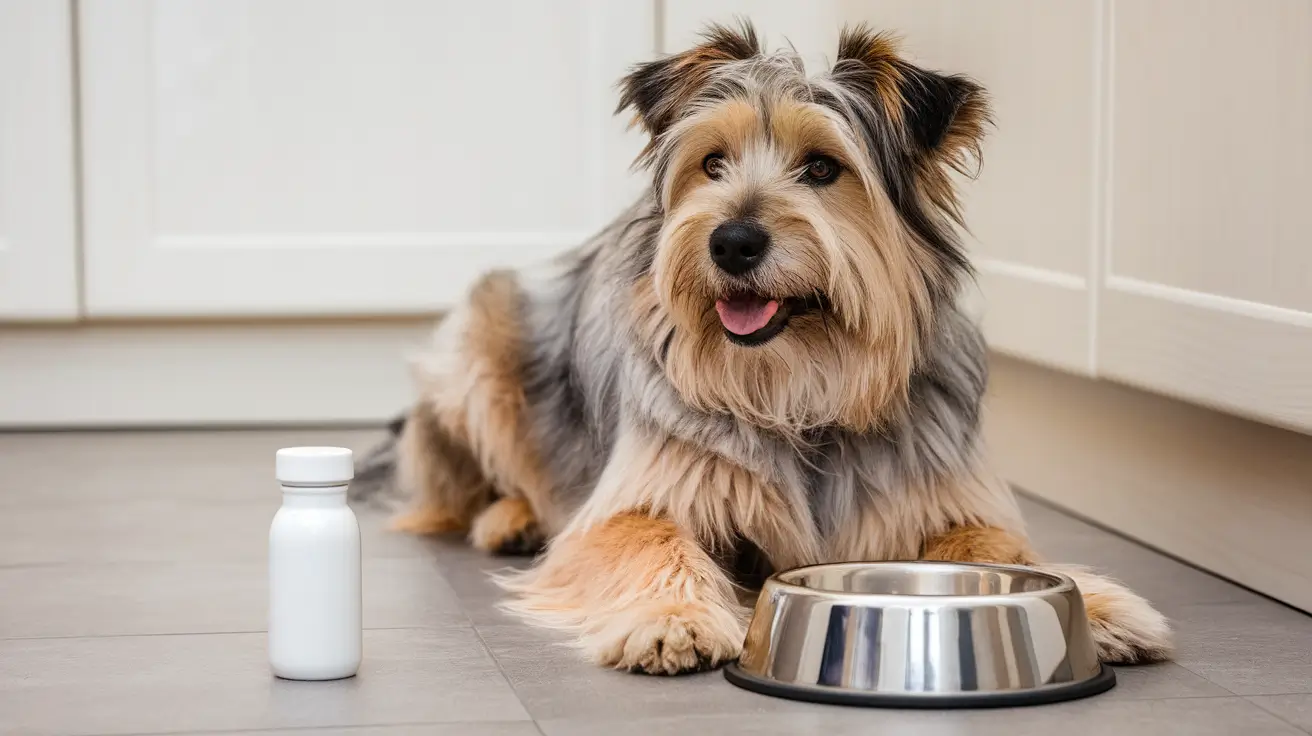Understanding the Canine Microbiome
The canine microbiome is a complex ecosystem of microorganisms residing primarily in a dog's gastrointestinal tract. This intricate community consists mainly of bacteria, accounting for about 95%, alongside protozoa, fungi, and viruses. These microorganisms play a crucial role in maintaining overall health, aiding in digestion, nutrient absorption, and immune system functioning. By introducing beneficial bacteria such as Lactobacillus, Bifidobacterium, and Enterococcus through probiotics, we can help sustain a healthy gut microbiome, which is essential for a dog's well-being.
The Multifaceted Benefits of Probiotics
Digestive Health Enhancement
Probiotics are instrumental in optimizing digestive health by breaking down food and facilitating nutrient absorption. They can alleviate common gastrointestinal issues like diarrhea, constipation, and upset stomachs, especially in dogs with sensitive digestive systems. By maintaining a balanced gut microbiome, probiotics ensure efficient nutrient processing, crucial for dogs experiencing digestive challenges.
Immune System Strengthening
A significant portion of a dog's immune system is located within the gastrointestinal tract, making gut health vital for immune function. Probiotics support this by increasing beneficial bacteria and reducing harmful ones, thus maintaining a balanced microbiome. This balance allows the immune system to operate effectively, enhancing the dog's ability to fend off illnesses.
Mental Well-being and Stress Relief
The gut-brain axis is a well-documented connection that highlights the impact of gut health on mental well-being. Specific probiotic strains, such as Bifidobacterium longum, have been shown to reduce anxiety and improve behavioral issues in dogs. By maintaining a healthy gut, probiotics can positively influence a dog's mood, reducing stress-related behaviors like excessive barking or pacing.
Allergy and Skin Health Improvement
Probiotics can also play a role in managing allergies and skin conditions by promoting a balanced immune response. By enhancing gut health, probiotics may decrease the severity of allergic reactions, such as skin irritations and itching. Certain strains of Lactobacillus and Bifidobacterium have been found to manage yeast and support immune health, potentially alleviating allergy symptoms.
Addressing Other Health Concerns
Beyond digestive and immune support, probiotics can assist with various health issues. They can help manage food allergies, reduce bad breath, aid in weight management, support immune disorders, and assist in the treatment of liver disease. Additionally, probiotics may reduce intestinal inflammation and help prevent urinary tract infections by maintaining a healthy balance of gut bacteria.
Selecting the Right Probiotic for Your Dog
Identifying the Appropriate Strain
Different probiotic strains offer specific benefits for various health concerns. For instance, Lactobacillus acidophilus and Bifidobacterium animalis are known for their digestive benefits, while Enterococcus faecium is effective in shortening diarrhea episodes. Selecting the right strain is crucial for targeting specific health needs in dogs.
Evaluating CFU Counts
Colony Forming Units (CFUs) indicate the number of microorganisms in a probiotic product. While a higher CFU count suggests potency, it's not always indicative of effectiveness. It's important to choose a product with an appropriate CFU count for your dog's specific health requirements.
Cost vs. Quality
Probiotics vary in price, and while it might be tempting to choose the cheapest option, it's essential to ensure the product is both effective and safe. Balancing cost with quality is crucial in selecting a probiotic that will benefit your dog's health.
Palatability and Administration Methods
Selecting a probiotic that appeals to your dog's taste is important for consistent administration. Products come in various forms, including powders, capsules, and liquids, and some are flavored to enhance palatability. Choosing a method that is convenient for you and your dog ensures successful supplementation.
Targeting Specific Health Functions
It's important to match probiotics with the specific health issues your dog may face. Whether addressing digestive problems, immune support, or anxiety relief, selecting a probiotic tailored to your dog's needs ensures the best outcomes.
When to Consider Probiotics
During Stressful Situations
Probiotics can be particularly beneficial during stressful events such as travel, boarding, or changes in routine. Administering probiotics before these events can help maintain a stable gut microbiome, reducing stress-related health issues.
Post-Antibiotic Recovery
After antibiotic treatment, probiotics are essential for replenishing beneficial gut bacteria that antibiotics may have depleted. This helps prevent gastrointestinal issues such as diarrhea and supports overall gut health.
Supporting Puppy Development
Probiotics are beneficial during the early stages of a puppy's life, aiding in the development of a robust immune system and healthy digestive tract. Establishing a strong foundation during puppyhood can lead to better health outcomes as they grow.
Assisting Recovery from Illness
Probiotics can support recovery processes in sick dogs by enhancing digestive health and immune function. They can help sick dogs regain their strength and return to optimal health more quickly.
Potential Side Effects and Considerations
Common Side Effects
While probiotics are generally safe, some dogs may experience side effects when first introduced to supplements. These may include stomach discomfort, gas, diarrhea, constipation, or bloating. Monitoring your dog for these symptoms is important when starting probiotics.
When to Consult a Veterinarian
If side effects persist or if you're uncertain about the appropriate probiotic for your dog, consulting a veterinarian is advised. A vet can provide tailored advice based on your dog's specific health needs and ensure safe and effective probiotic use.
Conclusion
Incorporating probiotics into your dog's health regimen offers numerous benefits, from enhancing digestion and immune function to alleviating anxiety and allergies. By supporting a balanced gut microbiome, probiotics contribute to a healthier, happier dog. Always seek veterinary advice to select the best probiotic tailored to your dog's unique health requirements.






